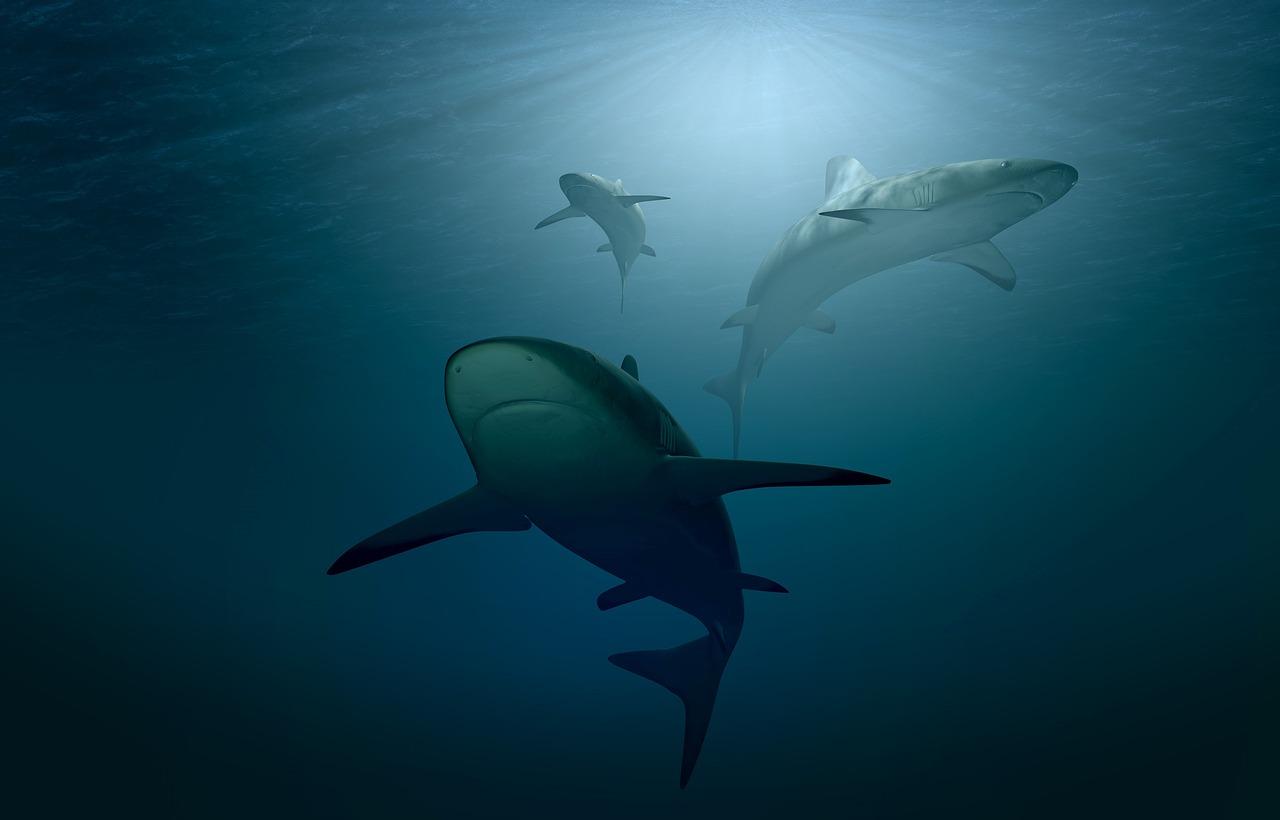White sharks, popularly known as Carcharodon carcharias or great white sharks, represent one of the most distinctive forms of oceanic life. With erect robust bodies and razor-sharp teeth, they may induce a feeling of dread; but, the importance of their role in maintaining the equilibrium of marine ecology can't be denied. As apex predators, they are key players in the health of our oceans and regulate everything from fish populations to marine food web structure. In this regard, these white sharks are seen not as terrifying predators, but rather as organs of ocean health.
1. Top Predators of the Ocean
As apex predators, these sharks sit at the very top of the food chain in marine environments and have no natural predators. This places them in a unique position to regulate the populations of other marine species. Their predatory habits have resulted in an equilibrium within marine ecosystems wherein they maintain populations of other large predators and prey, thus preventing any one species from becoming too dominant. This is known as "top-down regulation," which restores equilibrium in the marine food web.
2. Prey Population Control
Being marine mammal, fish, and even some other sharks eaters, white sharks preferentially maintain feast or drive towards appealing prey species that deter descent on smaller fish, squid, and even sea grass beds. Absent such natural controlling factors, the overpopulation of certain species would lead to overgrazing of even more precious benthic resources, such as plankton-the basic food of marine life. Thus, white sharks help control the balance of life in the oceans.
3. Contribution Towards Healthy Marine Population
The white sharks prey on the weak or diseased prey species, which ensures healthy population development. Healthy populations will ultimately solidify under the natural selection principle, where only the strongest members survive and breed. This natural predator feedback causes the sick and weak individuals to be eliminated from the population, preventing the further spread of disease and allowing the genetic pool to be stable. The healthy prey populations in turn support broader biodiversity in the ecosystem.
4. Biodiversity Management
The white sharks indirectly sustain a diverse complement of other continuing species found in marine ecosystems. They check prey species population growth, which supports the survival of a variety of species besides themselves. With fewer species to rely on, the overall biodiversity decreases in ecological systems, limiting interactions and dynamics. The loss of shark populations or a decrease in shark numbers can lead to the so-called "trophic cascades" whereby the disproportionality spreads across the food web, ultimately culminating in other species declines.
5. Shark-Tourism and Ecosystem Services
In addition to their other roles in ocean health, sharks provide economic returns through shark tourism. In many coastal areas across the globe, people go to see sharks, bringing forth picturesque vistas on par with coastal economies and providing incentives for their protection and conservation, thus allowing for positive outcomes for local communities.
6. The Dangers of Declining Shark Populations
Shark populations, including white sharks, have suffered considerable declines due to human actions that include overfishing, habitat destruction, and the shark fin trade. The decline of such populations can create imbalances in marine ecosystems, including altered fish stocks and impaired health of coral reefs. The removal of a species from any ecosystem can trigger a food web to collapse, threatening environmental resilience of the oceans.
7. Conservation is Key
Because the conservation of white sharks is of utmost importance to the conservation of marine ecosystems, numerous countries worldwide have established protected marine areas and shark sanctuaries. International efforts to combat the rampant demand for shark fins and regulate fishing in certain areas are vital for the survival of white sharks and other species. Public awareness and research into shark behavior and ecology also play an important role in understanding and promoting the conservation of these animals.
Conclusion
Great white sharks are not just great predators; they are its guardians. By being apex predators, they maintain the stability of marine ecosystems by regulating prey species, promoting biodiversity, and otherwise them. The decline in the shark population may directly affect the balance of marine life. While conservation, including the protection of these wonderful creatures, may very well serve to protect oceans into the future and for all the life forms that depend on it.
Sharks are responsible for ocean health and should always be part of other marine threats.

